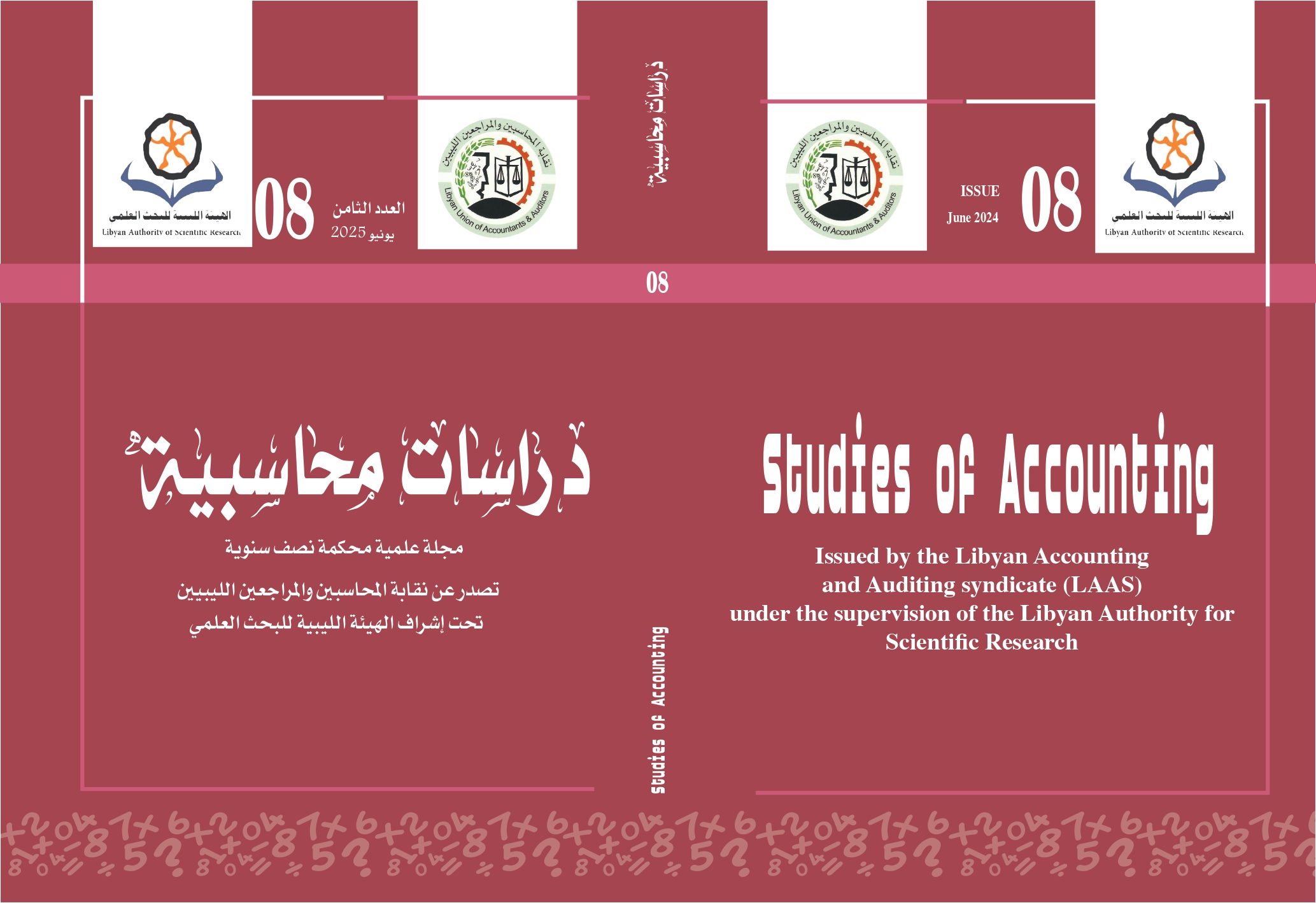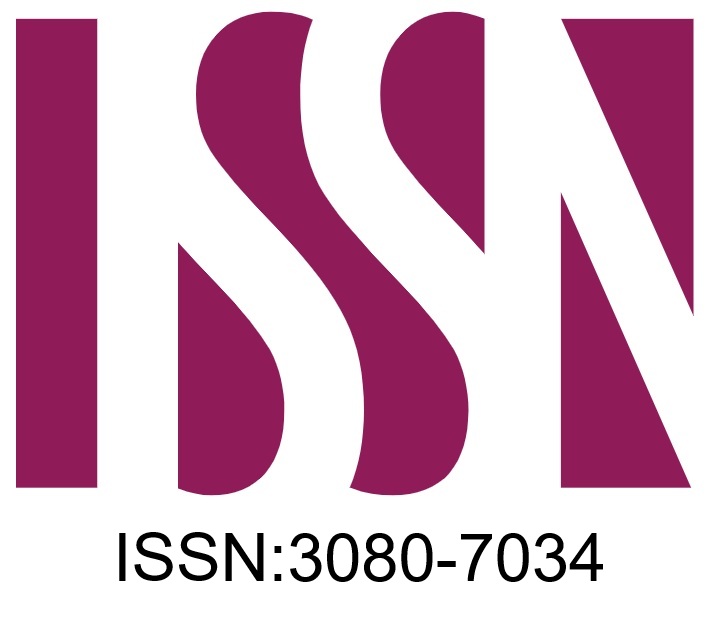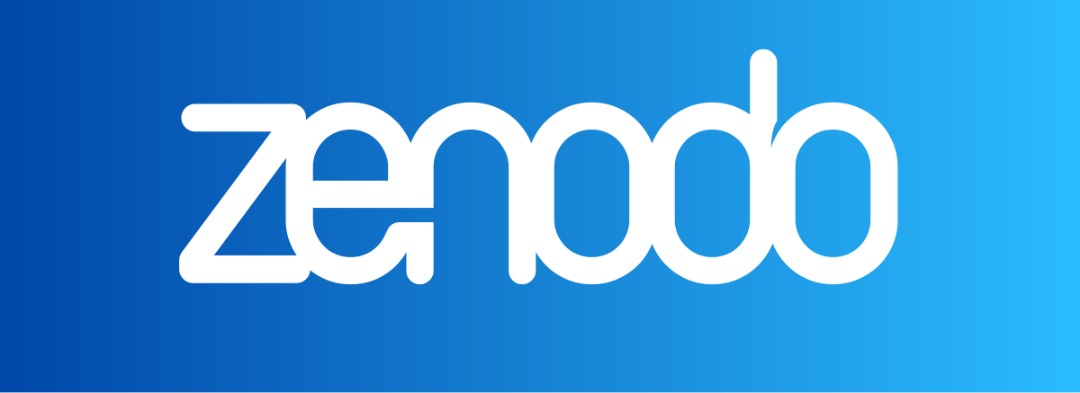An investigation into the perceptions of accounting students and accountants towards accounting education
DOI:
https://doi.org/10.5281/zenodo.16907374Keywords:
Keywords: Accounting Topics, Accounting Skills, Accounting Knowledge, Accounting Students, Accountants. الكلمات المفتاحية: مواضيع المحاسبة، مهارات المحاسبة، المعرفة المحاسبية، طلاب المحاسبة، المحاسبين.Abstract
4
References
References:
Abas, K, and Ali, K. (2022). The skills and traits which are needed for accounting graduates in order to secure job in the Libyan job market. An exploratory study of accounting graduates and employers. Misrata University, Misrata, Libya.
Ainikkal, J. (1993). Exploring the New Zealand manufacturing environment. Accountants’ Journal, July, 28-31.
Alamari, I, Ashkal, G, and Ishtewi, H. (2021). Accounting graduates’ knowledge and skills and its role in the Libyan job market; An applied study. The Journal of Academic Research, 19; 28-38.
Alarbi, A, and Abufares, R. (2006). The skills that must be available in Libyan accountants. The first national conference about accounting, Almahari Hotel, Tripoli, Libya, 12/6/2006.
Alazawi, N, S. Alankaby, A, T. and. Mohammed, S, J. (2018). Developing accounting education output in line with job market needs, and through the adoption of International Accounting Education Standards. University of Karbala.
Adler, R., Everett, A.M. & Waldron, M. (2000). Advanced management accounting techniques in manufacturing: Utilisation, benefits, and barriers to implementation. Accounting Forum, 24, (2), 131-150.
Albrecht, W.S. & Sack, R.J. (2000). Accounting education: Charting the course through a perilous future. American Accounting Association. Accounting Education Series, vol. 16.
Almagori, N, M. (2008). Bridging the gap between accounting education and the requirements of the profession: A study in the Libyan environment. Bachelor working paper. University of the 7th of April, Libya.
Arquero Montaño, J. L., Donoso Anes, J. A., Hassall, T., & Joyce, J. (2001). Vocational skills in the accounting profile: The Chartered Institute of Management Accountants (CIMA) employers’ opinion. Accounting Education, 10(3), 299-313.
Aryanti, C. and. Adhariani, D. (2020). Students’ Perceptions and Expectation Gap on the Skills and Knowledge of Accounting Graduates. Journal of Asian Finance, Economics and Business Vol 7 No 9, 649–657.
Askarany, D.; Yazdifar, H. (2007), “Why ABC is not widely implemented?”, International Journal of Business Research, Vol. VII, No.1, pp. 93-98.
Bjornenak, T.; Falconer, M. (2002), “The development of activity-based costing journal literature, 1987-2000”, The European Accounting Review, Vol. 11, No. 3, pp. 481-508.
Bakar, M. Z. A., & Bakar, S. A. (2020). Prudent Financial Management Practices among Malaysian Youth: The Moderating Roles of Financial Education. Journal of Asian Finance, Economics, and Business, 7(6), 525-535.
Belkheir, Elaurfy, and Mansour Yousf, (2019). The Reality of Accounting Education at the Libyan Higher Education Institutes: "Field Study on Lectures of Accounting Departments". Proceedings of the First Scientific Conference of Business Environment in Libya, Ajabiya, Libya.
Birnberg, J.G. (2000). The role of behavioural research in management accounting in the 21st century. Issues in Accounting Education, 15, (4), 713-728.
Boer, G.B. (2000). Management accounting education: Yesterday, today, and tomorrow. Issues in Accounting Education, 15, (2), 313-333.
Brewer, P.C. (2000). An approach to organising a management accounting curriculum. Issues in Accounting Education. Issues in Accounting Education, 15, (2), 211-235.
Bright, J., Davies, R.E., Downes, C.A., & Sweeting, R.C. (1992). The deployment of costing techniques and practices: a UK study. Management Accounting Research 3, 201-211
Bui, B., & Porter, B. (2010). The expectation-performance gap in accounting education: An exploratory study. Accounting Education: An International Journal, 19(1-2), 23-50
Chenhall, R.H. & Langfield-Smith, K. (1998). Adoption and benefits of management accounting practices: an Australian study. Management Accounting Research, 9, 1-19.
Cohen, S.; Venieris, G.; Kaimenaki, E. (2005), “ABC: adopters, supporters, deniers and unawares”, Managerial Auditing Journal, Vol. 20, No. 9, pp. 981- 1000.
Dugdale, D. (1993). Theory and practice: The views of CIMA members and students. Management Accounting – London.
Dyer, J.L. (1999). Accounting education on the threshold of a new century. The Government Accountants Journal 48, (4), 40-47.
Howcroft, D. (2017). Graduates’ vocational skills for the management accountancy profession: Exploring the accounting education expectation-performance gap. Accounting Education, 26(5-6), 459-481.
Kavanagh, M. H., & Drennan, L. (2008). What skills and attributes does an accounting graduate need? Evidence from student perceptions and employer expectations. Accounting & Finance, 48(2), 279-300.
Klibi, M. F., & Oussii, A. A. (2013). Skills and attributes needed for success in accounting career: Do employers’ expectations fit with students’ perceptions? Evidence from Tunisia. International Journal of Business and Management.
Lander, G.H., & Reinstein, A.R. (1987). Identifying a common body of knowledge for management accounting. Issues in Accounting Education, Fall, 264-280.
Lange, P.D., Jackling, B., & Gut, A.- M (2006). Accounting graduates' perceptions of skills emphasis in undergraduate courses: An investigation from two Victorian universities. Accounting and Finance, 46, 365-386
Maali, B. and Al-Attar, A. (2020). Accounting Curricula in Universities and Market Needs: The Jordanian Case. SAGE Open, January – March 1 -12.
Maskall, B. & Baggaley, B. (2000). The future of management accounting. Journal of Cost Management 14, (5), 24-27.
Mladenovic, R. (2000). An investigation into the ways of challenging introductory accounting students’ negative perceptions of accounting. Accounting Education: an International Journal, 9(2):135-155.
Musbah, A, Y. (2021). The knowledge and skills which are needed for accounting graduates: An exploratory study of accounting academics, who are practicing accounting profession. The international conference of quality assurance of higher education institutions. ICQAHE2021, 119-130.
Myers, Randy. (2005). Accounting Education Changes Course. Journal of Accountancy; American Institute of Certified Public Accountants. New York, fourth edition, volume 200.108-113.
Noor Azizi Ismail, Faisol Elham, Kamarul Bahrain Abdul Manaf, & Rosmawati Mamat. (2001). The importance of non-technical skills in accounting graduates. Akauntan Nasional,22-27.
Robinson, M.A. & Barrett, M.E. (1988). The content of management accounting curricula. The Accounting Educators Journal, Spring, 49-60.
Sithole, T, M, S. (2015). quality in accounting graduates: Employers expectations of the graduate skills in the Bachelor of Accounting degree. European Scientific Journal August 2015 edition vol.11, No.22, 165 – 180.
Thottoli, M.M. (2020), “Impact of accounting software among SMEs accountants in Oman: financial markets”, Institutions and Risks, Vol. 4 No. 2, pp. 25-33.
Uyar, A., & Gungormus, A. H. (2011). Professional knowledge and skills required for accounting majors who intend to become auditors: Perceptions of external auditors. Business and Economics Research Journal, 2(3), 33-49.
Wells, P. Gerbic, P. Kranenburg, I. Bygrave, J. (2009). Professional Skills and Capabilities of Accounting Graduates: The New Zealand Expectation Gap? Accounting Education. Volume 18 No 4.
Zuregigat, Q, M. (2017). Accounting Graduates Skills and Employers’ Needs: The Saudi Case. Jordan Journal of Business Administration, Volume 11, No. 1, 2015.

Downloads
Published
Issue
Section
License
Copyright (c) 2025 Accounting Studies

This work is licensed under a Creative Commons Attribution 4.0 International License.

Authors retain copyright and grant the journal right of first publication with the work simultaneously licensed under a Creative Commons Attribution (CC-BY) 4.0 License that allows others to share the work with an acknowledgment of the work’s authorship and initial publication in this journal.









